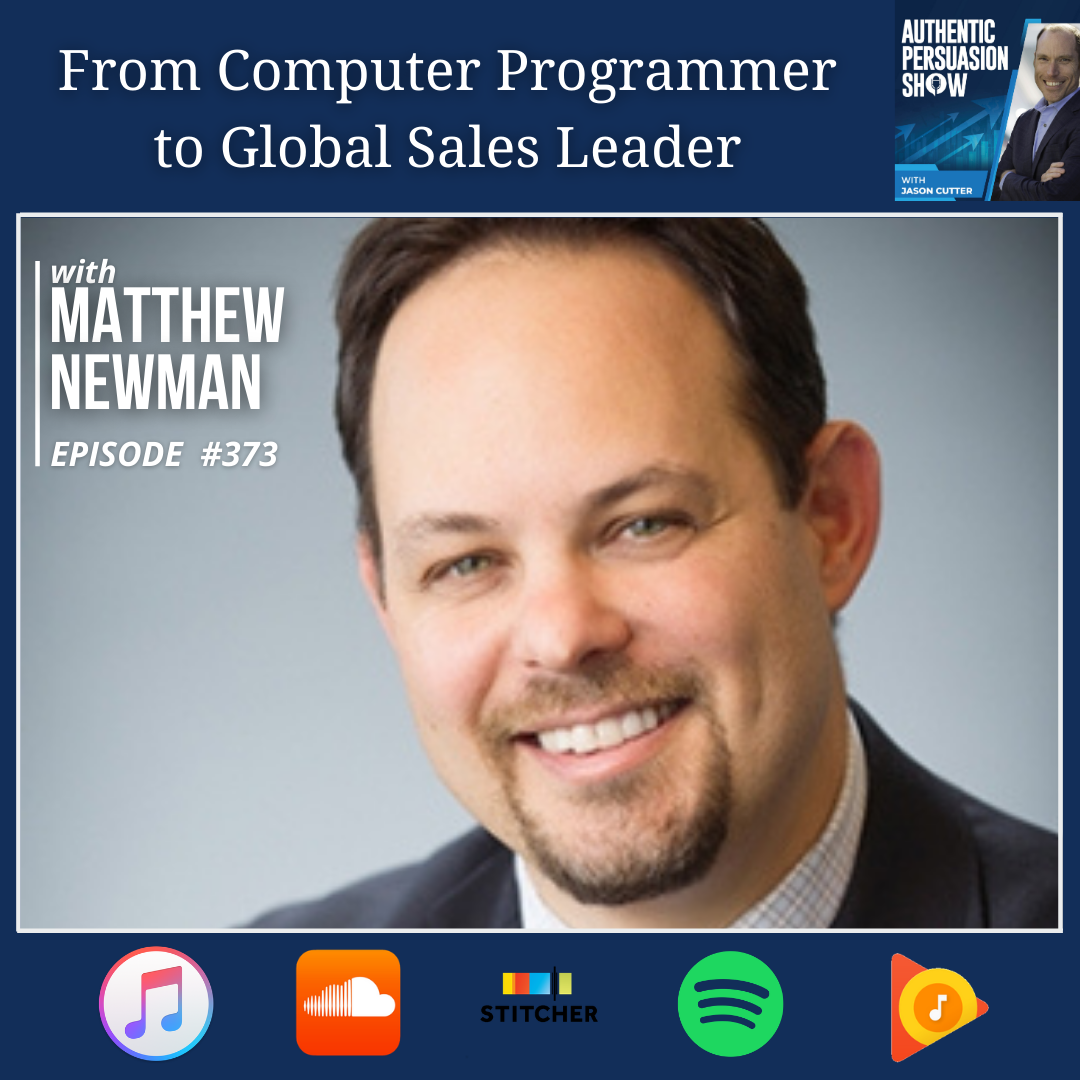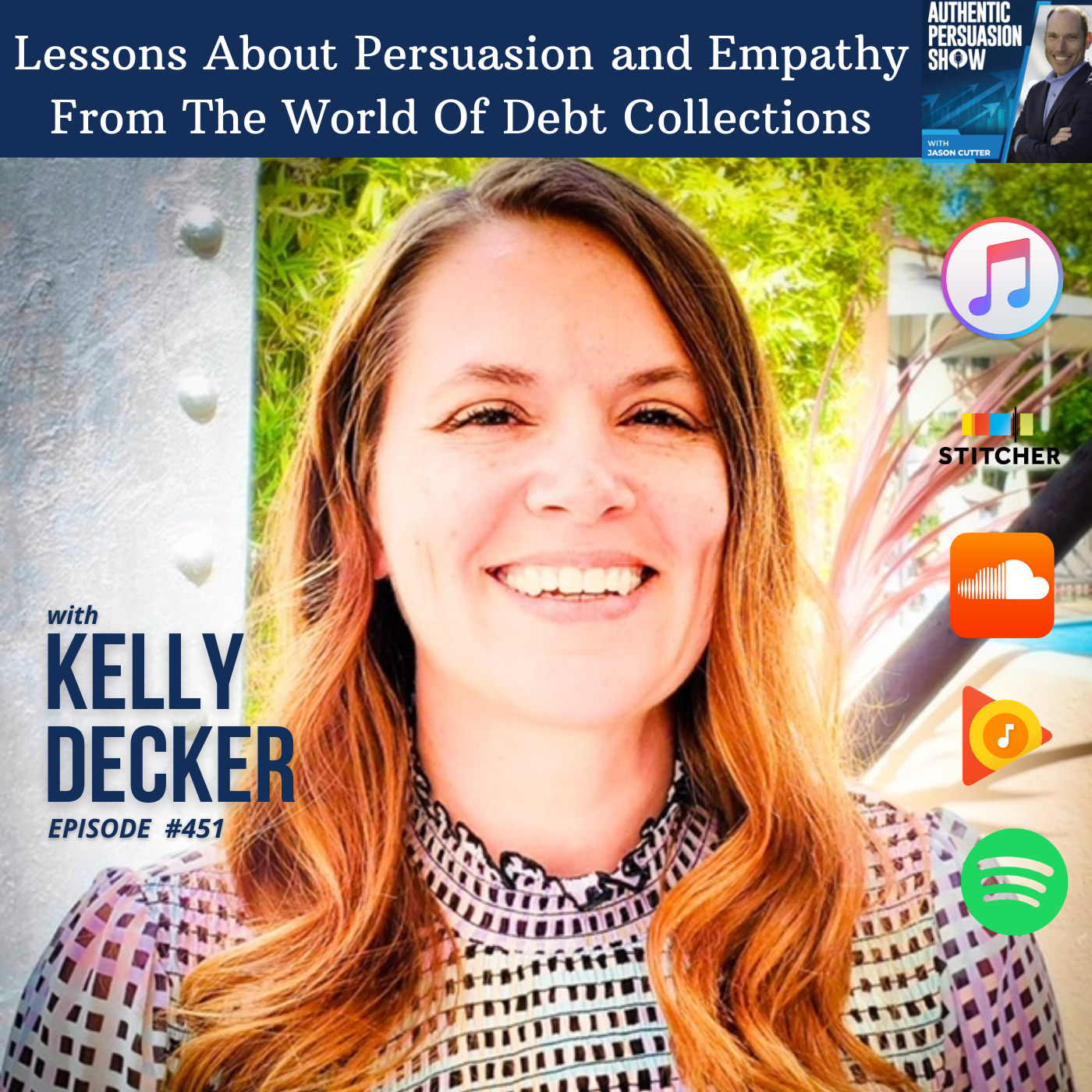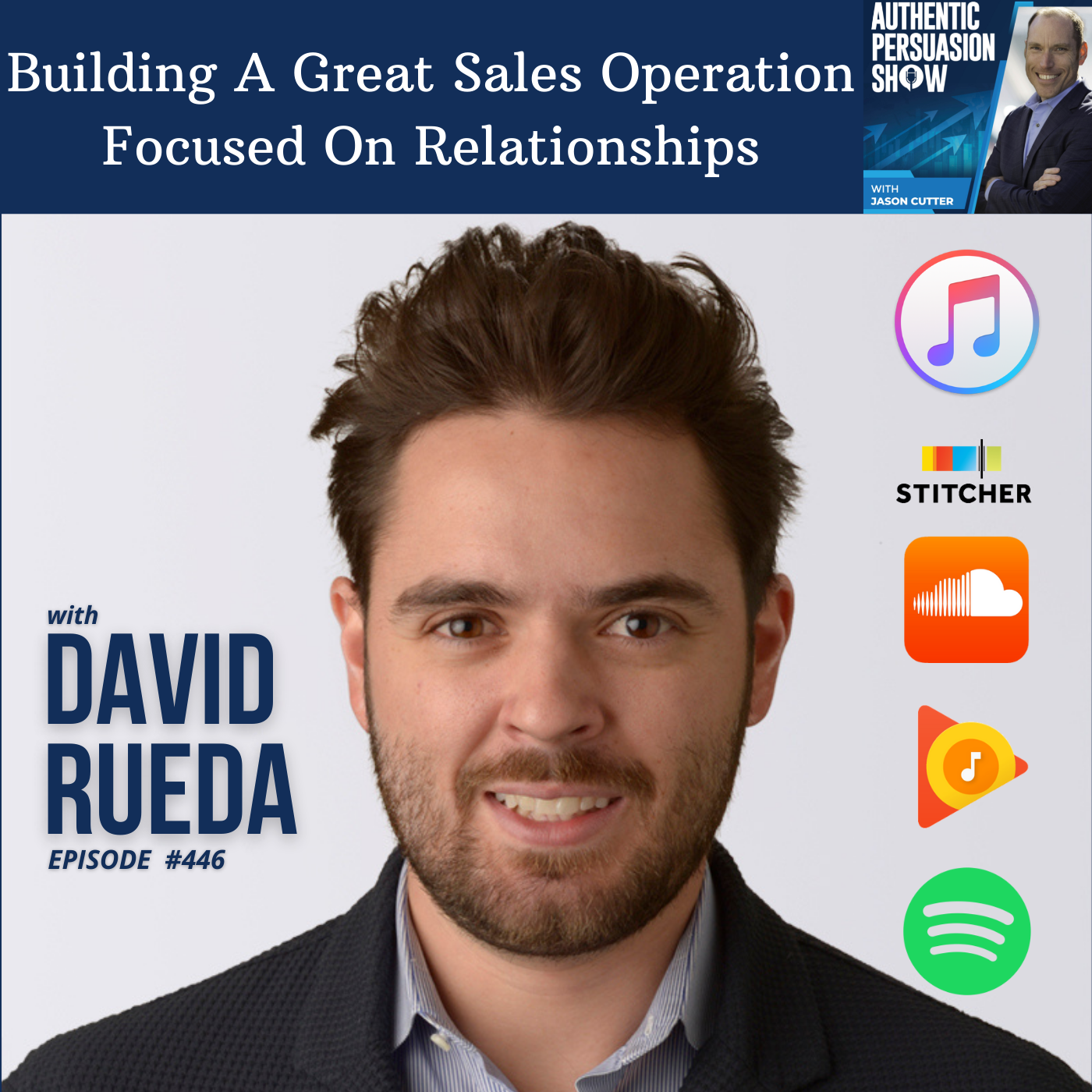Show Notes
This is the final segment of the conversation I had with Eric.
In Part 4, Eric and I talk about:
- Are your employees the right fit for your brand and culture?
- Hiring quickly, firing even quicker
- Sales reps are easy to measure their performance
- Make sure there is a scoreboard
Download The Power of Authentic Persuasion ebook
Enroll in the Authentic Persuasion Online Course
Connect with Jason on LinkedIn
Connect with Eric on LinkedIn
Eric’s Info:
Eric Malka is a renowned serial entrepreneur, business operator and published author with more than 30 years’ experience in the luxury Branded Consumer-Packaged Goods arena.
As co-founder and former CEO of The Art of Shaving he is one of the world’s foremost experts on men’s shaving and grooming, having developed the company from start-up to an internationally recognized men’s grooming brand leader sold in over 1000 prestigious stores worldwide and 150 company-operated US retail shops.
In 2009, The Art of Shaving was acquired by Gillette/Procter & Gamble – Eric was tapped by P&G to continue in his role as CEO through the end of 2010.
Today, as SBI’s Managing Partner Eric shares his vision and experience with his partners and their management teams, working closely with them to pioneer and develop winning strategies that build iconic brands and grow businesses.
Eric’s Links
Website: https://www.strategicbrandinvestments.com/
LinkedIn: https://www.linkedin.com/in/eric-malka-9071529/
E150 – Transcript
Jason: Welcome back to the sales experience podcast. My name is Jason cutter. Welcome to the final part, part four of four of my conversation with Eric. We were on literally a roll going all over the map but really focused on what he does and for me that’s a different realm. I spent a lot of time inside sales, outside sales, in retail early on in my adult life, but never from a strategic, wasn’t really thinking about it in my retail experience to the level that he built and created this. And so this is a fascinating realm that’s outside of my normal experience from a business side, as a customer I can totally relate the things he says. I appreciate from a customer standpoint and I think we all can. When you go into an organization or a business or a company or retail, whatever it is, and you interact with them and you can feel the difference of an organization where they care about the customer versus ones where it’s not the top priority. So here it is part four, enjoy. And of course make sure to check out Eric’s information and check out the website. Get the transcript and here’s part four.
Eric: Look, don’t get the wrong impression when I say I’m a nice guy, that if you’re an awesome, extraordinary employee, I’m your best friend,
Jason: Your number one fan for sure.
Eric: I love you. You love me. So love that. But be aware, be what you stand in my way or the customer’s where the company’s the way I will be. Your worst nightmare Which makes sense, right? It’s gotta be a long term relationship or an extremely short one in my world.
Jason: So let me ask you this as a different sidebar. When we’re talking about management and leading and dealing with salespeople, especially in a retail consumer thing, you know, obviously go into hiring, get them the right fit. Do they, do they fit with the brand and the purpose? Do you think they’ll be good with customers? When do you usually know when it’s not a good fit? Because you know, dealing with salespeople, the challenges that are going to sell you on how good they are and they’re usually good at it. And then the question is, is when they hit the floor, how good are they? So when do you usually know?
Eric: Well, again, in the 90s, we didn’t have the tools we have now with predictive indexes, Google and Facebook and all that. I’ve hired people I was excited about that were duds and hired people I wasn’t sure about that became superstars. You know, I just read a book called the speaking with strangers, uh, by, uh, Malcolm Gladwell, his last book. And he basically says, even the CIA has a 50% batting average when detecting, you know, bullshit. Yeah, it’s hard to figure it out. I think I’ve become better. But it took me a long time at the end of, you know, the last few years I started hiring some superstars and that’s because I had made so many mistakes. I kind of honed that skill. So yeah, it’s a tough one.
Jason: Well, and I think it, it, part of it is to like what I’ve found in my experience, like you said, you hire the people who maybe they’ll make it, but I’ll give you a shot. And then they turned out to be amazing. And then what I’ve learned is, you know, just to give people chances, set the right framework with the mission, the purpose, the values. Let them loose on a very short leash and be willing to, you know, hire quickly and fire even quicker if it’s just not a good fit. And once you get to that place and the expectation is set with them that, Hey, if this isn’t a good fit, we’ll let you know. You know, not in a ruthless way is a, you know, once you have that, then you’re willing to give more people a chance and not super risk your brand with the customers.
Eric: And you have to be structured, right? You create a structure around the end. Salespeople are the easiest ones to measure quickly, right? Other positions, right? There’s no, you can’t hide. No numbers don’t lie. I’m also amazed by how many companies don’t have a performance structure for people who continuously assess themselves against their performance. You know, the scoreboard for salespeople is so important
Jason: And it’s truly amazing how many people want that feedback. Their employees, their salespeople, they want the scoreboard. They want to know how they’re doing. They want to know the goals and the numbers and organizations just don’t give it to them and everyone’s flying blind.
Eric: I was amazed to see how excited a grown adult it was about getting a gold star.
Jason: We’re all kids. We’re all kids. We’re reliving our elementary school days or high school days. Wherever you’re stuck.
Eric: If they hit their target, they got a nice bonus. The gold star was making their day, but you know salespeople. I was told early on that you can’t manage sales without statistics. No. You know there would be no Michael Jordan without a scoreboard. Your superstars are motivated by competition, by the scores, by by the wins, and that makes you have automatically your bottom feeders very clearly identified. And if you create a culture that is not a shark tank, but a healthy competitive environment of successful salespeople, the top performers will push the bottom performers out of the company. And people that allow poor performers to stay in the company, they will lose their top performers every time.
Jason: Yeah, no one wants to work somewhere where mediocrity is acceptable. The winners don’t want to be there. Right?
Eric: It’s like Ricky Bobby, if you’re not first, you’re last.
Jason: You’re not first, you’re last. That’s it. I mean, and it’s true, right? I mean if you look at, especially sports and top teams, like they have no talent. The top, the players have no tolerance for people who aren’t pulling their weight and wanting to as well and heading in the same direction.
Eric: It’s the same as sales. You know, they won the last game, but they need to win this one, forget last championship. We have a new championship on the horizon. That takes a lot of mental toughness.
Jason: Yeah, and the worst thing you can do as a manager, as an owner is tolerate and keep mediocre or bad sales reps because the top performer, especially if ever like usually happens too, is the bottom salespeople get the attention from the manager, kind of like a bad kid, gets the attention from a parent and then the good kid, the good sales rep is like, wait, I’m doing things right. Why don’t I get any attention or time or coaching or leadership or gold stars. And it’s like, well then why should I even try? Because you know, nothing. Nothing I do seems to be, you know, what the company wants.
Eric: So you have to acknowledge performance. And you know, I’ve had managers come to me and say, this salesperson is unbearable to work with and I can’t deal with them anymore. And then I would look at their sales and I said, they’re number three in the whole company. As long as they’re not doing something that has to do with honesty and company policies, you know, they’re your superstars, dude. They’re not going to be treated like everyone else. They are superstar. You don’t treat Lebron the way you do with the rookie. He’s a superstar and everybody the same. It’s not the, you know, it’s not a democracy. No, it’s not equal. Not every customer. And not every sales person is created equal.
Jason: Right. And I think the one big caveat with that is, as long as that number three superstar, that person is still a good fit with the brand. The purpose, the mission, the core values, treats their coworkers with respect and treats the customers like you want them to treat them, that’s then that’s acceptable. In my opinion. It’s when the number three or the number one is an ass and treats everyone like crap and is toxic and poisonous to the group. Even maybe not the customers, but to the group. That’s when it’s not acceptable. But you know, if they just make the manager’s life hard because you know they’re high maintenance and they kind of expect a lot of things their way. They’re not, but they’re not terrible about it. Then that’s, that’s just a management that’s just dealing with, you know, a superstar
Eric: That’s dealing with the manager. I agreed. If they don’t live the company’s value and if they’re toxic or dishonest, there’s no questions asked. But if they want to take a day off on a Saturday, you know, which is a no-no in our world. They earned that. They earned to have preferential treatment. I’m sorry. It’s just the way, you know, capitalistic culture is work.
Jason: Yeah. Like you said, it’s not a democracy. It’s not communism. Not everyone is treated the same and given the same things. Right.
Eric: And I would tell the manager, if I were you, I would be serving that person as well as I can. They’re making you look good bro.
Jason: Yeah. Servant servant leadership. Right? So it’s about being a servant to your employees, whether they’re number three or you know, they’re meeting their goals and they’re winning. Like you said, from the very beginning. Your job as the CEO is the top person is to sell. But then also, you know, the inverted pyramid where you know, the salespeople are the front line, the owner, the CEO, like the bottom guy who’s there to help everybody else.
Eric: Yeah. That’s what sets the culture from the beginning.
Jason: Yeah. That’s awesome. Well, anything else regarding sales? So I’ll give you the final word. I mean, I know we’ve covered a lot, which has been fun.
Eric: Yeah, no, listen, I, I covered sales from a retail standpoint, direct to the consumer . I, you know, there’s a whole other area with my wholesale business and the B2B side that is different from, from this, but you get the general sense of where I’m coming from as a CEO.
Jason: Well, and I think a lot of that applies anyway, right? Because I spent a lot of time business to consumer, business to business, more telephone sales, inside sales, not as much retail, but as you’re talking about it, literally all of that applies like reps knowing their numbers, the good reps know their numbers, the bad reps have no idea what’s going on with them or the company and all the different things that you talked about. Literally, in my opinion, is just fundamentally sales done the right way, no matter where you’re at and you know, thinking that most things in life are sales, that also it’s how you treat other people and your relationships. So very cool man. Yeah. Well, thank you for being on the show. I’m going to put your information links and all of this into the show notes. Is there some place where if people want to find out more about you or anything that you’re supporting or passionate about, where should they go?
Eric: Well, our main website for our private equity fund is called the strategicbrandinvestments.com. That’s the best way to see what we’re up to these days where we continually invest in early stage companies. We’re also incubating a new company right now, a new brand for the first time since the art of shaving, but you can see it all on, on our website.
Jason: Perfect. Well, I’ll put that in some other links in there. Eric, thank you again for being on the show. I have enjoyed hearing a lot about, uh, your experiences with the, uh, the retail stuff.
Eric: Thanks for having me, man.
Jason: Yeah. And uh, like I said, go to cutterconsultinggroup.com you can find the transcript from the conversation as well as all as Eric’s links. And as always, keep in mind that everything in life is sales and people remember the experience you gave them.
![[E150] Customer Focused Sales with Eric Malka – Part 4 of 4](https://episodes.castos.com/salesexperiencepodcast/images/Eric-Malka-Cover-Image.png)


